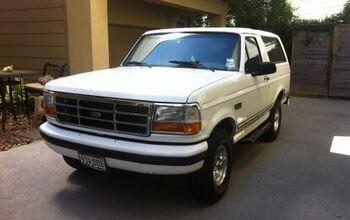Housekeeping: We Want Your Feedback

Hey there! As you know, TTAC looks a bit different than it did last week. And operates a bit differently, as well.
Well, it's been a week now, and we'd like to hear feedback from you, the reader, on what is and what isn't working.
I have been monitoring the comments, and I've read your emails (and replied, if necessary. If I owe you a reply, feel free to ping me again). But it will be easier if we can round up feedback in the comments to this post.
Please keep your grievances realistic and focus on things that aren't working or we could easily change. Meaning complaints about user experience, or bugs, or functionality. Complaints about aesthetics are irrelevant to this conversation, as are complaints about topic mix or tone or the quality of our prose. Save those for another time.
We are aware of some things that aren't working or aren't working well, and those things will be fixed in short order.
Please keep in mind that the impetus behind the change wasn't just that the old site looked, well, old, but also that it was quite slow to load. It was like an '80s crapcan -- ran great for a long time but started looking dated and running slowly.
As our VP of Content, Colum Wood, puts it: "While the front end of the site may not look dramatically new, the back end changes are dramatic. As you may know, Google puts a lot of weight on site speed and a few other key metrics. Achieving those metrics is critical to having a high-ranking site and top-performing content. With the migration to this new platform we've been able to eliminate a lot of tech debt built up over years and score extremely highly in all key measured metrics from Google."
In other words, we'll be running more quickly once this is all sorted. That's good for you -- the site will load on your laptop, tablet, or phone more quickly. And it's good for us -- we'll traffic a bit better, and us writers and editors will be more productive when the site loads faster.
But as always when there is a major change, we've run into unanticipated challenges. Most of those should be handled this week.
That said, we also want to hear from you. Sound off below!
[Image: Sorn340 Studio Images/Shutterstock.com]
Become a TTAC insider. Get the latest news, features, TTAC takes, and everything else that gets to the truth about cars first by subscribing to our newsletter.

Tim Healey grew up around the auto-parts business and has always had a love for cars — his parents joke his first word was “‘Vette”. Despite this, he wanted to pursue a career in sports writing but he ended up falling semi-accidentally into the automotive-journalism industry, first at Consumer Guide Automotive and later at Web2Carz.com. He also worked as an industry analyst at Mintel Group and freelanced for About.com, CarFax, Vehix.com, High Gear Media, Torque News, FutureCar.com, Cars.com, among others, and of course Vertical Scope sites such as AutoGuide.com, Off-Road.com, and HybridCars.com. He’s an urbanite and as such, doesn’t need a daily driver, but if he had one, it would be compact, sporty, and have a manual transmission.
More by Tim Healey
Latest Car Reviews
Read moreLatest Product Reviews
Read moreRecent Comments
- MaintenanceCosts "And with ANY car, always budget for maintenance."The question is whether you have to budget a thousand bucks (or euro) a year, or a quarter of your income.
- FreedMike The NASCAR race was a dandy. That finish…
- EBFlex It’s ironic that the typical low IQ big government simps are all over this yet we’re completely silent when oil companies took massive losses during Covid. Funny how that’s fine but profits aren’t. These people have no idea how business works.
- Ajla Goldman Sachs 🥂
- Rna65689660 DVR and watch all that are aired. Has been this way for 40 years.


































Comments
Join the conversation
every time i go to the site it shuts down after a few seconds and goes to my home page. Upon the second time of loading TTAC it stays on the site. This happens every time. Never did that before but unsure if maybe its me?
The function of the return key seems to be changing from week to week - i.e., 'do we allow commenters to use paragraphs or do we restrict them to pithy one-liners.'
The current iteration (Aug 21) is Wrong because a single return gets you a paragraph (which takes up *more* vertical space). [You're still doing it wrong]